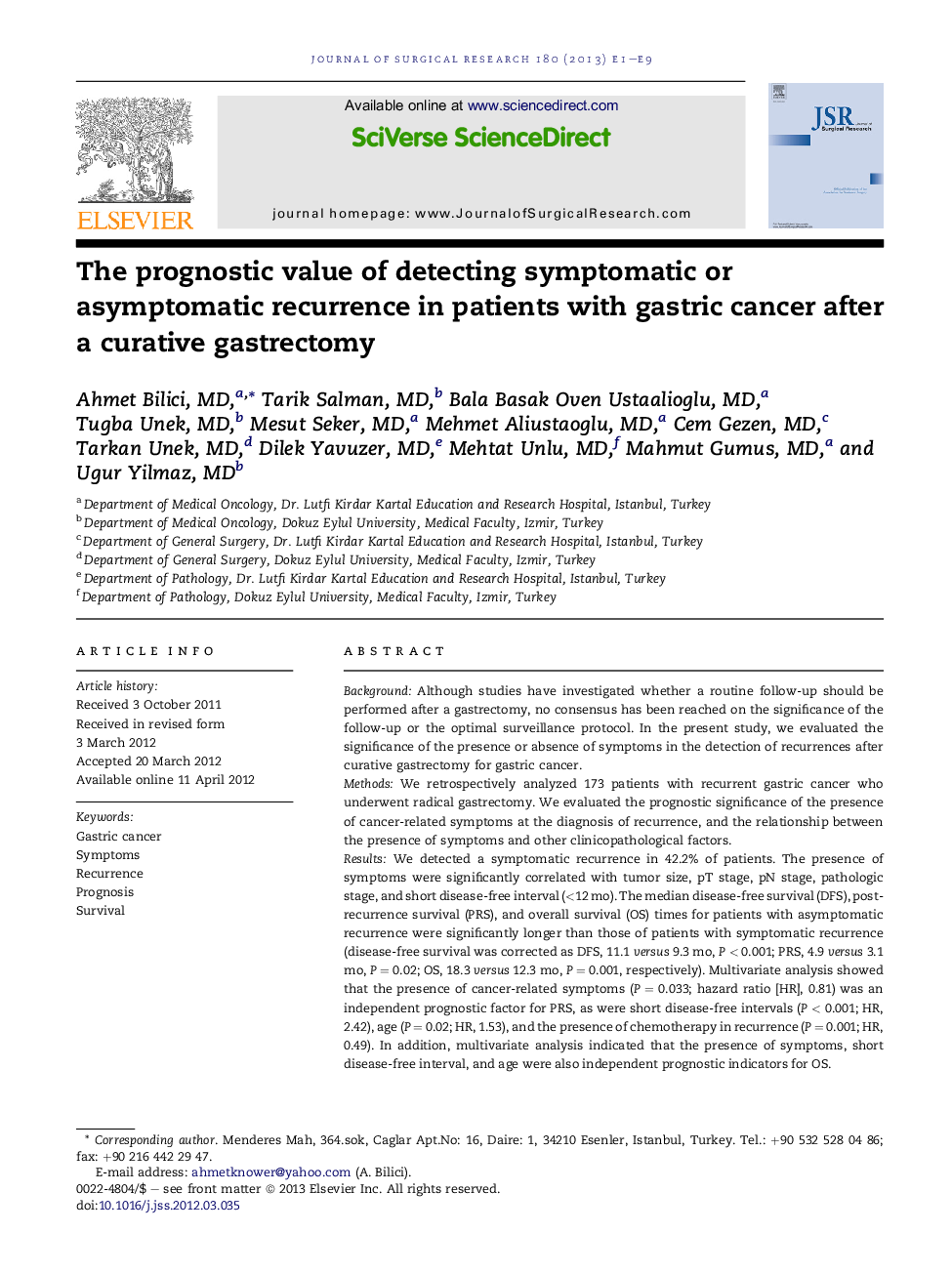| Article ID | Journal | Published Year | Pages | File Type |
|---|---|---|---|---|
| 4301172 | Journal of Surgical Research | 2013 | 9 Pages |
BackgroundAlthough studies have investigated whether a routine follow-up should be performed after a gastrectomy, no consensus has been reached on the significance of the follow-up or the optimal surveillance protocol. In the present study, we evaluated the significance of the presence or absence of symptoms in the detection of recurrences after curative gastrectomy for gastric cancer.MethodsWe retrospectively analyzed 173 patients with recurrent gastric cancer who underwent radical gastrectomy. We evaluated the prognostic significance of the presence of cancer-related symptoms at the diagnosis of recurrence, and the relationship between the presence of symptoms and other clinicopathological factors.ResultsWe detected a symptomatic recurrence in 42.2% of patients. The presence of symptoms were significantly correlated with tumor size, pT stage, pN stage, pathologic stage, and short disease-free interval (<12 mo). The median disease-free survival (DFS), post-recurrence survival (PRS), and overall survival (OS) times for patients with asymptomatic recurrence were significantly longer than those of patients with symptomatic recurrence (disease-free survival was corrected as DFS, 11.1 versus 9.3 mo, P < 0.001; PRS, 4.9 versus 3.1 mo, P = 0.02; OS, 18.3 versus 12.3 mo, P = 0.001, respectively). Multivariate analysis showed that the presence of cancer-related symptoms (P = 0.033; hazard ratio [HR], 0.81) was an independent prognostic factor for PRS, as were short disease-free intervals (P < 0.001; HR, 2.42), age (P = 0.02; HR, 1.53), and the presence of chemotherapy in recurrence (P = 0.001; HR, 0.49). In addition, multivariate analysis indicated that the presence of symptoms, short disease-free interval, and age were also independent prognostic indicators for OS.ConclusionsOur results demonstrate that symptomatic recurrence is an important prognostic factor for PRS of patients with gastric cancer after a curative gastrectomy. The presence of symptomatic recurrence may be a new and beneficial prognostic marker to evaluate biologic aggressiveness, which is an important determinant of survival at the time of recurrence diagnosis during a follow-up for gastric cancer.
